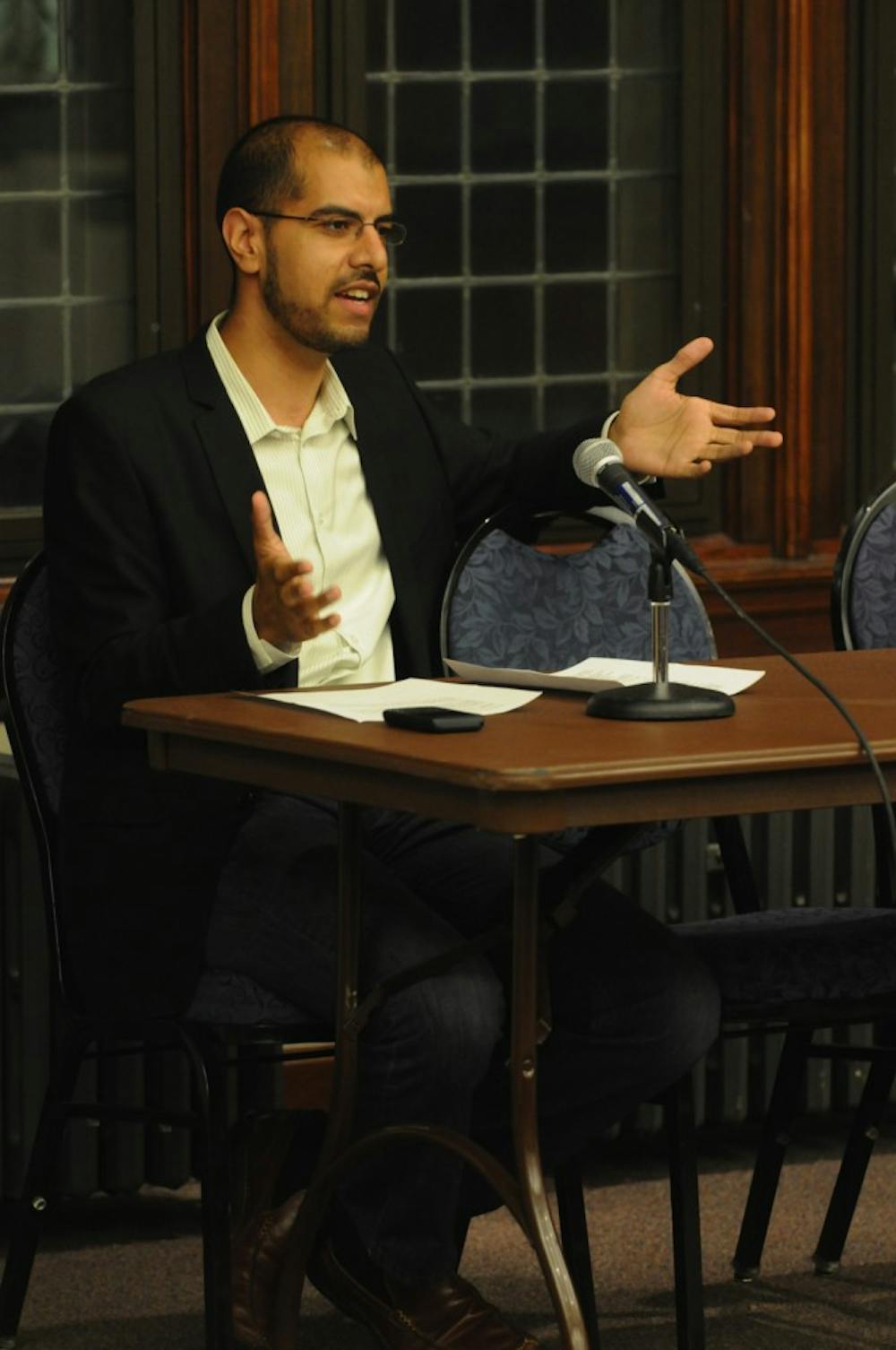
While racism and stereotypes are no laughing matter, Haroon Moghul’s fast-paced lecture on the history and contemporary myths of Islam was filled with sarcastic remarks and light-hearted jokes about Muslim culture and religion. “The better it is, the worse you feel tomorrow,” Moghul said of Pakistani food.
As part of its annual Islam Awareness Week, the Penn Muslim Students Association hosted the lecture “Muslims in a Post-9/11 America” in Houston Hall Monday night. Moghul, a doctoral candidate at Columbia University, works with many different groups such as the Maydan Institute to promote awareness of Muslims and knowledge about Islam.
“We wanted to open up a broader discussion of issues that the Islamic community faces, and to look at the vibrancy and diversity in our community,” College junior and MSA Treasurer Mak Hussain said.
The talk reflected the theme of this year’s awareness week, “New Beginnings and Old Foundations,” by providing historical context to show what Islam in America looks like today. Moghul also addressed the social anxiety that some Americans feel toward Muslims and the ways to move past these stereotypes.
He identified five major issues, both historical and contemporary, that can be used to positively influence the perception of Muslims in the United States. These issues include the prevalence of female heads of state in Muslim countries, the role of Muslims in civil rights movements and the importance of understanding the relationship between Arabs and Muslims. Moghul drew attention to the fact that 80 percent of Muslims are not Arabs, and that the five countries with the highest Muslim populations are not located in the Middle East.
Moghul also challenged the myth that Islam was spread through violence. The violence and extremism of the Taliban, he said, are products of the modern world. He added that the historical spread of Islam in Egypt, by contrast, took over 700 years through peaceful means.
Moghul identified several roles that Muslims have played in history that often go unnoticed. Muslims were involved in influential colonial slave revolts and fought for Allied imperial powers in World War II, he said. In light of these feats, Moghul described the popular notion of Islam as an opponent of the West to be “historically absurd.”
Following the lecture, the audience of roughly 25 asked questions about topics ranging from women’s rights under Muslim law to the role of Muslims in creating their own marginalization. In response to Hussain’s question about how to move past “Islamophobia,” Moghul stressed the importance of time, suggesting that significant changes in attitudes toward Muslims will take a generation or two.
Many in attendance felt they learned something new about Islam. “He brought up some really interesting contemporary issues I hadn’t heard articulated in that way,” third-year Graduate School of Education student Mariam Durrani said.
The Daily Pennsylvanian is an independent, student-run newspaper. Please consider making a donation to support the coverage that shapes the University. Your generosity ensures a future of strong journalism at Penn.
DonatePlease note All comments are eligible for publication in The Daily Pennsylvanian.




